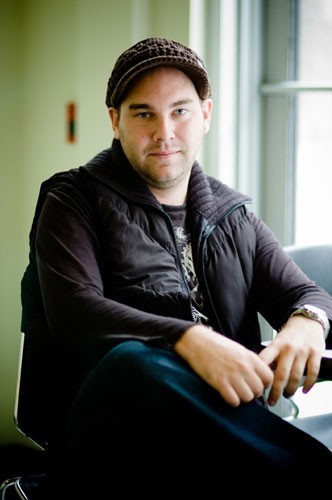Reflections from presidents, past and present
Catching up with former UWSA student leaders after their terms are up
Some become policy-makers, others open businesses. Indeed, former University of Winnipeg Students’ Association (UWSA) members often make interesting career choices.
“They are all over the place,” said David Jacks, who was UWSA president in 2007-2008. “I know ex-UWSA members that hold government positions like minister of labour and immigration. Others front environmental movements or start their own businesses.”
Jacks was recently elected as Manitoba chairperson of Canadian Federation of Students (CFS). The CFS works to influence and change government policies for the good of Canadian students. According to Jacks, his time in the UWSA prepared him for the position.
“Working at the UWSA helps you develop communications and administrative skills. It also helps you understand the inner workings of provincial and federal politics – you learn how to implement change in them,” he said.
In September 2007, when written death threats were discovered in University of Winnipeg bathrooms, Jacks, as representative of all U of W students, had to discuss the issue with the media.
“I was surrounded by cameras and reporters,” he said. “Situations like these improved my communication skills so now I can do things like publicly debate post-secondary budgets.”
Current UWSA president Jason Syvixay believes many students have misconceptions about the people who work in the UWSA.
“ Working at the UWSA helps you develop communications and administrative skills. It also helps you understand the inner workings of provincial and federal politics – you learn how to implement change in them.
David Jacks, former UWSA president
“It’s made up of a diverse area of people who are all headed in different directions,” Syvixay said. “UWSA members are often interested in politics, but that’s just a piece of the pie. There are people working from all different facets, advocating all different ideas. Everything on campus must be represented.”
Because of the diversity within the organization there are often conflicting viewpoints amongst its members. Syvixay believes it’s natural for an organization of such size to function this way.
“There are always going to be differing opinions in the boardroom,” Syvixay said. “Human beings hold on to what they believe and will always try to assert their opinions. If everyone agreed it would be too easy, though. That wouldn’t work on campus. People have to disagree on things and discuss them to solve problems.”
Sarah Amyot, president of the UWSA in 2003, often refers to her time in the organization as boot-camp-like.
“You’re forced to learn a lot in an extremely short period of time,” Amyot said. “I refined my analytic skills, learned how to write for a popular and government audience, learned about working with government and community groups, about how boards function, the democratic process and how to work in a team environment.”
Jacks affirmed that the diverse skill set learned by UWSA members is beneficial to all students.
“Whether you’re an arts student or studying bio-chem, it only helps to build on what you’re learning in the classroom.”








